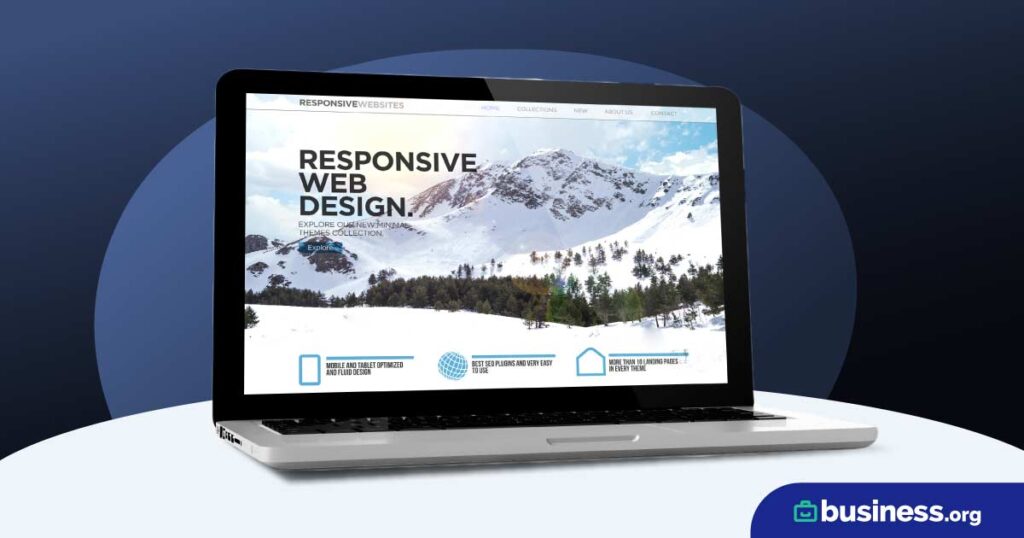We are committed to sharing unbiased reviews. Some of the links on our site are from our partners who compensate us. Read our editorial guidelines and advertising disclosure.
The Difference Between Leasing and Financing Business Equipment
Every business needs equipment to run more efficiently, so what’s the best way to finance expensive equipment? Is it a lease, a loan, or something else?
The best way to get expensive equipment has everything to do with the needs of your business and the kind of equipment you’d like to acquire. We’ll give you some key questions to answer before you decide what financing option will work best with your business.
First, let’s look at the differences between lease and finance options.
Leasing equipment
When you lease equipment, your lessor gets to keep the title. You’ll make monthly payments with interest, but you won't technically own the equipment you’re using at the end of the agreement.
That said, certain lease agreements allow you to buy the equipment for a specific amount after the agreement ends. You’ll have paid quite a bit of interest by then, but the title will be yours if you pay the specified price—usually $1.
Not all lease agreements end with a purchase offer, however. Sometimes you just give the equipment back or renew the lease. That’s okay, though, because sometimes you won’t want to own the equipment long-term. Especially if that equipment has a short lifespan or is intended for a single project.
By signing up I agree to the Terms of Use.
Financing equipment
Equipment loans are a great way to finance your new equipment. These loans are more accessible than traditional business loans because the equipment itself acts as collateral to secure the loan.
If you default on the loan, your lender can seize the equipment. On the bright side, however, this also means that you’ll likely have a lower interest rate. Secure loans are safer for your lender, so they’re more willing to be flexible on credit score requirements and loan terms.
Additionally, you get the title for your equipment when you finance it with an equipment loan. That’s right—once you’ve completely paid off the loan, you get to keep that industrial meat refrigerator all to yourself. Unless, of course, you bought a loudspeaker system for your conference hall. You’ll get to keep that to yourself and to everybody in a one-mile radius of your amplified voice.
How long do you need the equipment?
Sometimes you need equipment for a day, sometimes a year, sometimes 10 years. We’ll use an excavator as an example. You may use an excavator for a one-day dig to move dirt out of your parking lot. You may need an excavator for a year to dig the foundations of a small housing development. Or you may need an excavator for 10 years if your business centers around digging foundations for homes.
If you need an excavator for only a day, it’s probably best to just do a day rental. If you need an excavator for a year, it’s probably not cost-effective to buy one with a loan, so a lease would work best. If you need an excavator as an essential part of your long-term work, it may be most cost-effective to finance the equipment with a loan so you can own it once the loan is paid off.
The bottom line is you have to know how long you’ll need the equipment to determine what will be most cost-effective. Sometimes it’s a lease. Sometimes it's a loan. Be sure to run the numbers before you decide.
What’s the equipment’s life cycle?
Another thing to consider is the rate at which equipment becomes obsolete. For example, excavators don’t change much from year to year—we’ve pretty much figured out how to move dirt. Certain technical equipment, however, may need to be replaced regularly. Equipment that needs to be replaced or updated regularly is better financed with a lease agreement because you can usually end the lease and trade up with your lessor for the latest item.
Sometimes you need equipment in the long term, but said equipment isn’t very durable. Think car brakes: you always need them, but they go bad and must be replaced often. For equipment that needs regular replacement, you’ll want to consider a short-term equipment loan or a lease.
You should never accept a loan that lasts longer than the expected life of the equipment because you’ll be making payments after your new toy has hummed its last note. No sense paying for something you’re not using.
Will your profits support your payments?
This is a crucial consideration. Your business profits may be able to support the payments on your equipment loan or lease before you even add the new equipment to your roster. Sometimes, however, businesses will take a gamble on a piece of equipment.
At first, they’ll be able to afford the payments, but over time, the equipment is expected to improve their bottom line enough to pay for itself. If this is your strategy, be careful. Make sure you have a concrete plan for how this equipment will improve your cash flow enough to pay for itself.
Also, never finance a piece of equipment that has little to no effect on your bottom line when you can’t afford the payments. Just because it would be fun to put a flashy neon sign on your office building doesn’t mean you need one.
Stay in your means, have a plan to make profits, and always make your payments. If you default on your equipment loan or miss a lease payment, you may be assessed fees and lose the equipment.
Do you need to customize the equipment?
Most lessors won’t let you change or customize the equipment they offer. Usually leased equipment is pretty generic in use and is thus a poor fit for a business that needs highly customized equipment.
If, for example, you want your equipment permanently branded with your company logo, you’ll probably have to either purchase said equipment outright or finance it with an equipment loan. The same can be said about any equipment you need to customize to perform a function specific to your business.
What about depreciation and tax consequences?
Purchased equipment may offer certain tax benefits that leased equipment doesn’t. Section 179 is a tax deduction that allows business owners to depreciate certain assets like tangible equipment. Your equipment will qualify for this deduction only if it’s used for business purposes at least 50% of the time.
Talk to your CPA or tax expert for more information about what kinds of assets may qualify for this deduction. For now, just keep in mind that purchasing equipment may give your business a tax break in the year it’s purchased and possibly in the following years as well.
Do I need good credit?
Lenders and lessors will usually run a credit check in deciding whether they want to do business with you. Depending on where you go, their rules may be strict or more flexible with your credit score.
Many online lenders are flexible in accepting less-than-optimal credit. The loan is backed by the equipment itself, so it’s less of a risk to the lender should you default. If your credit has been dragged through the mud a few too many times, you may want to start improving your credit score.
The takeaway
There’s one final way to finance equipment that we should mention now: just buying it. If the equipment is inexpensive and you could easily afford to purchase it outright, it may be worth doing so to avoid the interest rate of a loan or contractual payment obligation of a lease.
For every other equipment purchase, you can lease or finance. Once you’ve considered each of the key questions above, you’ll be empowered to make an informed decision on which financing option will be best for you.
If you decide to go the equipment loan route, we can help you decide which equipment lender is best. Check out our Best Equipment Financing Lenders for Small Businesses article to make your search a little easier.
Disclaimer
At Business.org, our research is meant to offer general product and service recommendations. We don't guarantee that our suggestions will work best for each individual or business, so consider your unique needs when choosing products and services.



